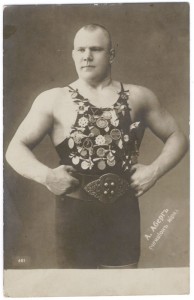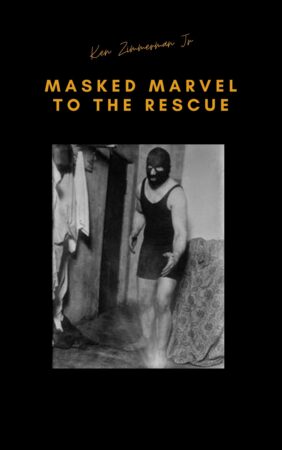Aberg expõe Curley
Aleksander “Alex” Aberg ganhou as manchetes em 1917 durante uma ação judicial sobre sua recusa em cumprir um compromisso de luta livre em Boston em março 1917. Aberg concordou em lutar contra Wladek Zbyszko, seu principal oponente durante o 1915 Torneios Internacionais de Luta Livre de Nova York, para o promotor de Boston George Touhey. However, Aberg desistiu da luta logo após assinar um acordo para lutar contra seu rival de longa data. Touhey entrou com uma ação por quebra de contrato.

Aleksander “Alex” Aberg (Domínio Público)
A explicação de Aberg para desistir da partida foi simples. Ei, ei, que fez parte da equipe promocional de Jack Curley, o convenceu a assinar para a luta acreditando que a luta seria uma competição ou luta legítima.
Depois de assinar para a partida, Curley e Touhey disseram a Aberg que ele perderia a partida para Zbyszko. Aberg recusou e não compareceu à partida de março 26, 1917.
Durante seu depoimento para o caso, Aberg disse que Touhey se gabou de dizer aos lutadores quem ganharia ou perderia e quanto tempo a luta duraria. Ele também teria se gabado para testemunhas de que todas as partidas que promoveu nos últimos 10 anos foram combinados.
Aberg assinou para uma partida de pega-pega com Zbyszko a ser decidida em um 2 out of 3 partida de outono. Embora seja um especialista em luta greco-romana, ele estava confiante de que poderia vencer Zbyszko de qualquer maneira.
Depois de ser dito para perder, Aberg recusou-se a participar da partida a menos que suas condições fossem atendidas. Primeiro, a partida seria uma disputa legítima. Segundo, o $2,000.00 ele deveria ser pago seria depositado na conta de Aberg antes da partida. Terceiro, um árbitro não nomeado por Touhey teria que ser acordado por ambos os campos. Touhey recusou as exigências de Aberg.
Aberg admitiu ter participado de algumas exposições pré-combinadas para Jack Curley até perceber como a prática era desprezada na América.. Depois que ele descobriu a reação contra “faking”, ele se recusou a lutar em qualquer outra exibição pré-combinada.
Aberg não parecia sofrer quaisquer consequências do processo judicial, mas as competições legítimas no wrestling profissional americano estavam terminando. Aberg voltou para a Europa em 1917 depois de perceber que suas opções seriam limitadas na América.
Tuohey logo seria substituído em Boston por Paul Bowser. Jack Curley continuaria sendo uma potência na promoção de Nova York por mais algumas décadas. Curley e Bower seriam membros do Trust, que correu wrestling na década de 1920. Apesar da exposição do processo Aberg, não pareceu impactar negativamente seus negócios.
You can leave a comment or ask a question about this or any post on my Facebook page.
Source: O examinador de São Francisco, Maio 2, 1917 edition, p. 15
Pin It

